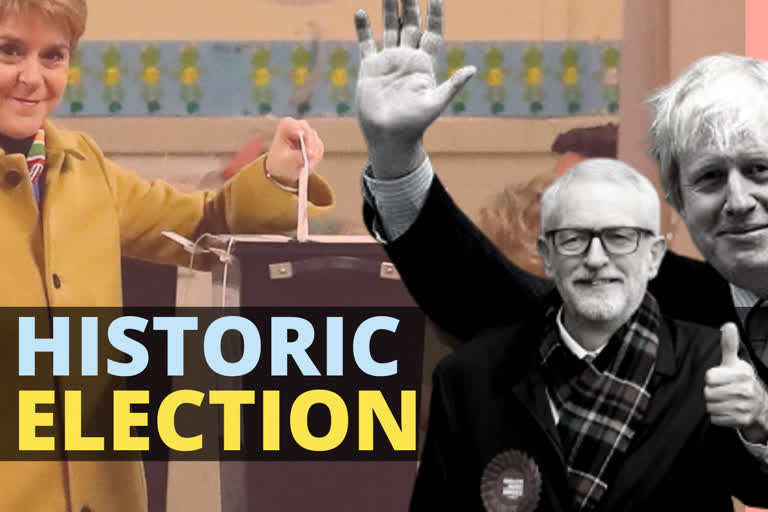London: Millions of enthusiastic voters flocked to polling stations across the UK on Thursday for the country's first December election in nearly a century to determine the fate of Brexit - Britain's impending divorce from the European Union.
British Prime Minister Boris Johnson and Opposition Leader Jeremy Corbyn were among the first to cast their ballots in London in an election that offers the electorate a stark choice between the Conservatives' pledge to leave the European Union (EU) on a signed withdrawal agreement and Labour's commitment to offer another referendum on the country's future relationship with the 28-member economic bloc.
Polling stations across all constituencies of the United Kingdom England, Wales, Scotland and Northern Ireland opened at 07:00 GMT where a total of 3,322 candidates are standing for election to 650 seats in the House of Commons.
The snap election had been called by Johnson in a bid to win a majority for his Conservative Party and get his Brexit deal through Parliament.
The UK is due to leave the EU but has failed to find parliamentary consensus on the terms of that exit, missing repeated deadlines - the last one being on October 31.
While Johnson has been keen to characterise this as a Brexit election with the party's Get Brexit Done message with the new January 31, 2020 deadline in sight, the Opposition Labour Party and others have been focussed on highlighting his Tory government's failures across domestic issues such as the state-funded National Health Service (NHS).
Johnson, 55, cast his vote at a central London polling station, taking his dog Dilyn along with him.
Labour leader Jeremy Corbyn, Liberal Democrat leader Jo Swinson, Scottish National Party (SNP) leader Nicola Sturgeon, Green Party co-leader Jonathan Bartley and Wales' Plaid Cymru leader Adam Price all cast their votes. Brexit Party leader Nigel Farage said that he has already cast his ballot by postal vote.
Read also: Final push in Britain's Brexit election
Under election day broadcast norms, it is expected for all parties to refrain from projecting party political analysis and a reference to opinion poll results is also kept at bay until the first exit poll result is declared at 22:00 GMT as soon as polling stations close.
The counting begins straight away, with Newcastle Central and Sunderland South and Houghton in the north east of England holding the crown for the fastest to declare.
The results from most of the other constituencies are expected to be declared by the early hours of Friday, by which time the final tally becomes clear. Any party with more than half the MPs (326) in the Commons usually forms the government.
If no party has a majority of MPs, the one with the most can form a coalition, with one or more other parties to gain control.
Read also: The main parties and policies in the British election



